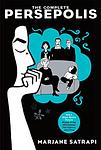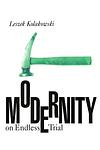The Greatest Polish, Iranian "Nonfiction" Books Since 1980
Click to learn how this list is calculated.
This list represents a comprehensive and trusted collection of the greatest books. Developed through a specialized algorithm, it brings together 300 'best of' book lists to form a definitive guide to the world's most acclaimed books. For those interested in how these books are chosen, additional details can be found on the rankings page.
Genres
Countries
Date Range
Reading Statistics
Click the button below to see how many of these books you've read!
Download
If you're interested in downloading this list as a CSV file for use in a spreadsheet application, you can easily do so by clicking the button below. Please note that to ensure a manageable file size and faster download, the CSV will include details for only the first 500 books.
Download-
1. Persepolis by Marjane Satrapi
This graphic novel is a memoir that provides a personal account of the author's childhood and young adult years in Iran during and after the Islamic revolution. The story portrays the impact of war, political upheaval, and religious extremism on ordinary people, while also exploring themes of identity, resilience, and the power of storytelling. Despite the harsh realities the protagonist faces, the narrative also includes moments of humor and warmth, providing a nuanced view of life in Iran during this tumultuous period.
-
2. Shah Of Shahs by Ryszard Kapuscinski
This book is a compelling blend of history and personal narratives, set against the backdrop of Iran's 1979 revolution. The author, a seasoned journalist, delves into the complex tapestry of Iranian society, exploring the rise and fall of the last monarch. Through a series of vignettes and interviews with Iranians from all walks of life, the narrative captures the atmosphere of fear and hope that defined the era. The work is as much an examination of the mechanics of power and the ease with which a society can be manipulated as it is a chronicle of a pivotal moment in Iran's history. The author's lyrical prose and sharp insights offer a timeless reflection on the nature of tyranny and the human struggle for freedom.
-
3. Persepolis Two by Marjane Satrapi
This graphic novel continues the story of a young girl growing up in Iran during the Islamic Revolution. After being sent to Europe for her safety, she struggles with feeling out of place and longs for her homeland. Eventually, she returns to Iran, only to find it vastly different from the place she remembered. The book explores themes of identity, culture, and the effects of political upheaval on a personal level.
-
4. Reading Lolita in Tehran by Azar Nafisi
The book is a memoir that takes place in Iran from 1979 to 1997, during the Islamic Revolution and the Iran-Iraq War. The story focuses on a professor who secretly gathers seven of her most committed female students to read forbidden Western literature in her home. As they read and discuss works by authors such as F. Scott Fitzgerald, Jane Austen, and Vladimir Nabokov, they explore their personal dreams and the losses they suffered due to the political, social, and cultural climate of the time.
-
5. Alicia by Alicia Appleman-Jurman
The book is a harrowing memoir of a young Jewish girl's survival during the Holocaust. It recounts her life from a peaceful childhood in a small Polish town to the unspeakable horrors of Nazi occupation. As her family is decimated and her world is torn apart, she becomes a courageous messenger for the Jewish resistance, risking her life to help others while on a relentless quest for survival. Her story is one of remarkable resilience, hope, and the enduring strength of the human spirit in the face of unimaginable adversity.
-
6. Imperium by Ryszard Kapuscinski
"Imperium" is a gripping account of the author's travels through the Soviet Union during the final years of its existence. With a keen eye for detail and a deep understanding of the complexities of power, the author delves into the lives of ordinary people and high-ranking officials alike, revealing the oppressive nature of the Soviet regime and the profound impact it had on the lives of its citizens. Through vivid descriptions and insightful observations, the book offers a compelling narrative that sheds light on the inner workings of a crumbling empire.
-
7. Daughter Of Persia: A Woman's Journey From Her Father's Harem Through The Islamic Revolution by Sattareh Farman-Farmaian
This memoir recounts the extraordinary life of a woman born into a privileged family in early 20th-century Iran, who witnessed the dramatic shifts of her country's social and political landscape. Growing up in a polygamous household, she broke with tradition to pursue an education abroad, later returning to Iran to become a pioneering advocate for social reform and women's rights. Her story spans the rise and fall of the Pahlavi dynasty, the advent of the Islamic Revolution, and her subsequent exile, offering a personal lens on Iran's complex history and the role of women within it. Through her journey, she embodies the struggles and resilience of a nation in the face of modernity and change.
-
8. Funny in Farsi by Firoozeh Dumas
This memoir tells the story of an Iranian family who migrated to America in the 1970s, offering a humorous take on their experiences. The narrative focuses on the author's childhood and adolescence, exploring themes of cultural identity, assimilation, and the immigrant experience in America. It highlights the family's journey of navigating a new country and culture, while still holding on to their Iranian roots. The book showcases the author's ability to find humor in the most challenging situations, making it a heartwarming and amusing read.
-
9. Modernity On Endless Trial by Leszek Kolakowski
"Modernity on Endless Trial" is a collection of essays that delve into the philosophical and cultural critiques of modernity, exploring the tensions and challenges inherent in the Western intellectual tradition. The author examines a wide range of topics, including the role of religion, the legacy of Enlightenment, the critiques of Marxism, and the philosophical underpinnings of modern political ideologies. Through these essays, the author offers a profound reflection on the nature of human belief, the limits of reason, and the ongoing struggle to find meaning and value in an increasingly secular and fragmented world. The book serves as a critical inquiry into the intellectual crises of the modern age, questioning the assumptions and hopes that have shaped contemporary Western thought.
Reading Statistics
Click the button below to see how many of these books you've read!
Download
If you're interested in downloading this list as a CSV file for use in a spreadsheet application, you can easily do so by clicking the button below. Please note that to ensure a manageable file size and faster download, the CSV will include details for only the first 500 books.
Download







